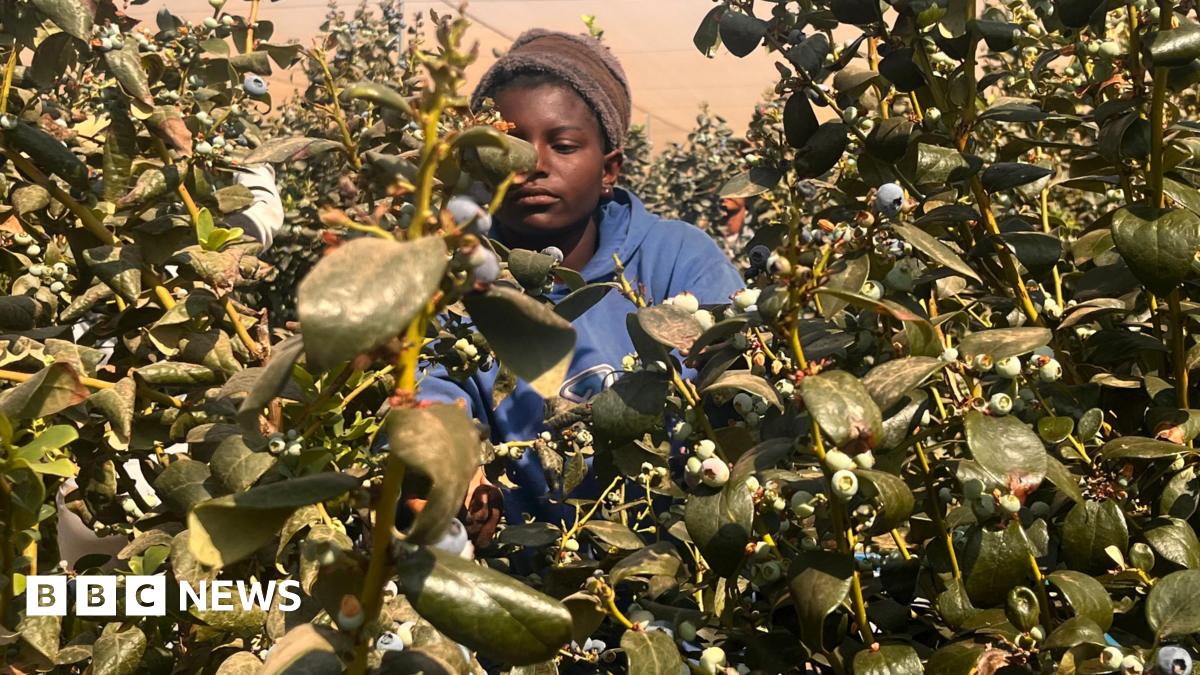Zimbabwe is Africa’s biggest producer of tobacco but some farmers believe the country’s long-term future could lie in a very different crop – blueberries.
Thanks to a breakthrough in trade talks with China, the world’s biggest importer of the nutrient-rich fruit, Zimbabwe has taken a major step towards achieving its ambition of becoming Africa’s blueberry capital.
Tobacco sales surged to a record $1.3bn (£1bn) last year, helped by the rising number of smokers in China.
In contrast, blueberry exports were worth a more modest $30m but horticulture specialist Clarence Mwale is undaunted.
“The future is food, not a bad habit,” he tells the BBC at his warehouse in Harare.
For the first time, China has agreed to import Zimbabwean blueberries and, crucially, has exempted them from tariffs, in a boost for the southern African state’s struggling economy.
“We have to strike while the iron is hot,” exuberant blueberry farmer Alistair Campbell tells the BBC.
Currently exporting to Europe, the Middle East and South East Asia, farmers like Campbell would be gaining access to a massive new market, once Zimbabwe passes China’s compliance tests on pest and disease control.
A former captain of Zimbabwe’s cricket team, 53-year-old Campbell co-owns a high-tech 50 hectare (123 acres) blueberry farm about an hour from the capital, Harare.
Each of the 240,000 plants on the farm is grown in a pot imported from the Netherlands or South Africa. The pot soil is also imported.
The plants are watered eight times a day, with specially treated water, and the blueberries are kept in refrigerators soon after they are harvested to maintain freshness.
Campbell said that although it was a demanding fruit to grow, the rewards are worth it, especially as global demand is increasing for what some describe as a superfood, with high levels of vitamins and anti-oxidants.
Campbell believes Zimbabwe can cash in on the rising demand, as the fruit comes into season early, in late March, hitting the market ahead of major competitors like Peru.
“It’s all about Peru avoidance,” laughs Campbell.
Peru is both a bitter rival and an inspiration for Zimbabwe’s farmers. In the last 10 to 15 years, it has gone from being responsible for less than 2% of global blueberry production to becoming the largest exporter of the fruit.
Zimbabwe’s production this year is expected to rise by 50% to 12,000 tonnes.
Morocco currently leads Africa’s production with more than 80,000 tonnes in 2024.
South Africa, Zimbabwe’s neighbour, produced 25,000 tonnes.
With South Africa being severely hit by US tariffs, it is looking for new markets for its fruit, with China being an obvious one, especially as it has promised zero tariffs for all African states, except Eswatini because of its close ties with Taiwan.
